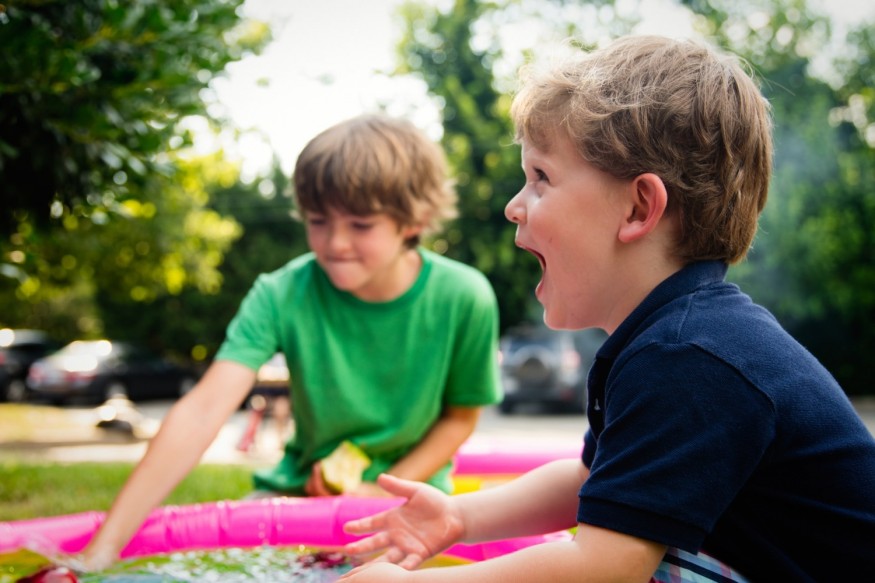Spanking may affect a child's brain development the same way as any kind of severe violence, a new study revealed.
The Harvard University study, "Corporal Punishment and Elevated Neural Response to Threat in Children," published in the Child Development journal, continues current research that reveals heightened activity in various regions of the child's brain who encounter abuse as a response to threat cues.
How Spanking Affects Children's Brain Activity
The researchers discovered that children had a greater neural response in several regions of the prefrontal cortex (PFC) when spanked, including regions part of the salience network. These neural areas respond to cues in people's surroundings that tend to be consequential, such as a threat, which affects their processing of situations and decision-making.
"We know that children whose families use corporal punishment are more likely to develop anxiety, depression, behavior problems, and other mental health problems, but many people don't think about spanking as a form of violence," study senior researcher Katie A. McLaughlin said in the study. McLaughlin is a John L. Loeb Associate Professor of the Social Sciences and director of the Stress & Development Lab in Harvard University's Department of Psychology.
"In this study, we wanted to examine whether there was an impact of spanking at a neurobiological level, in terms of how the brain is developing," she added.
Spanking Linked to Mental Health Issues
Researchers indicated that corporal punishment had been connected to the development of mental health issues, depression, anxiety, behavioral problems, and even substance use conditions. Recent studies disclose that around half of parents in US studies have admitted spanking their children in the past year, and a third reported such in the last week. But in these studies, the link between spanking and brain activity has not been analyzed.

Harvard researchers analyzed data from a sizable study of children from the ages of three to 11. The study zeroed in on 147 children about 10 and 11 years old who were spanked, excluding those who encountered severe types of violence.
These children laid on an MRI machine and looked at a computer screen that displayed various images of actors showing "fearful" and "neutral" faces. A scanner took images of the child's brain activity as they respond to each kind of face. The images were analyzed to find out if the faces caused different brain activity patterns in children who were spanked compared to those who were not.
Researchers said in the study that "on average, across the entire sample, fearful faces elicited greater activation than neutral faces in many regions throughout the brain... and children who were spanked demonstrated greater activation in multiple regions of PFC to fearful relative to neutral faces than children who were never spanked."
In contrast, "(t)here were no regions of the brain where activation to fearful relative to neutral faces differed between children who were abused and children who were spanked," the researchers further said in the study.
Study Affirms Spanking is Detrimental to Children
Researchers state that their study is an initial step towards the additional interdisciplinary analysis of spanking's possible effects on a child's brain development.
Jorge Cuartas, the first author of the study and a doctoral candidate in the Harvard Graduate School of Education, said in the study, "These findings aligned with the predictions from other perspectives on the potential consequences of corporal punishment."
"By identifying certain neural pathways that explain the consequences of corporal punishment in the brain, we can further suggest that this kind of punishment might be detrimental to children, and we have more avenues to explore it," he declared.
Researchers noted, however, that their findings do not apply to each child's individual lives.
"It's important to consider that corporal punishment does not impact every child the same way, and children can be resilient if exposed to potential adversities," Cuartas added in the study. "But the important message is that corporal punishment is a risk that can increase potential problems for children's development, and following a precautionary principle, parents and policymakers should work toward trying to reduce its prevalence."
McLaughlin would conclude by saying that their findings should encourage families not to use spanking as a form of disciplinary act. "(It may open people's eyes to the potential negative consequences of corporal punishment in ways they haven't thought of before," she said.
Read also: New Study Finding: Autism Is Thrice More Common in Boys, and Vitamin D Has Something To Do With It
Check out more news and information on Brain Development on Science Times.
© 2026 ScienceTimes.com All rights reserved. Do not reproduce without permission. The window to the world of Science Times.











